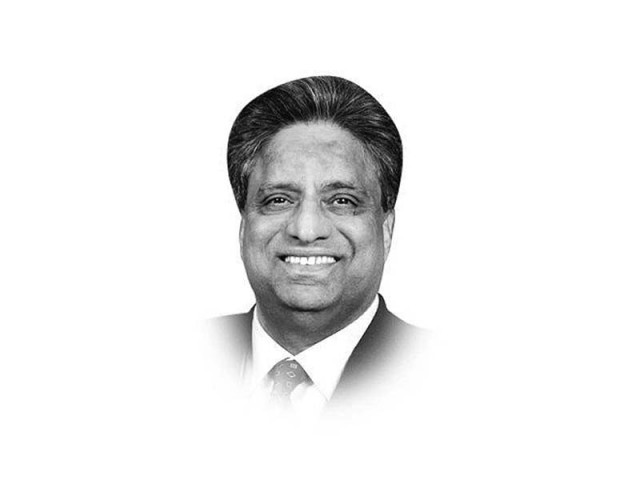Why Pakistan should not seek IMF funding
Some experts would have us believe that Pakistan has no choice but to seek the IMF’s help, which is a fallacy

Why Pakistan should not seek IMF funding
1. Devaluation of currency
2. Increase in electricity and gas rates
3. Liberalisation of Imports
4. Increase in interest rates
Devaluation increases foreign loan servicing in the rupee, increases inflation, prices go up all around without any counter benefit. Raw material imports for manufacturing becomes expensive, making exports expensive with resultant balance of trade deficit. Since entering the last programme, increase in raw cotton import costs have hammered the textile industry, making it virtually redundant.
Electricity and gas rates are already high in Pakistan, increasing these further will make life more difficult for the common man and also raise the cost to industry. Liberalisation of imports has wrecked our industry and economy, one wonders why imports were not cut down in the recent mini-budget? Balance of trade is at its worse in the country’s 70-year history, imports $51 billion, exports $20 billion and a $31 billion deficit is a gift from the previous government. Had overseas Pakistanis not regularly sent home $20 billion a year, the country would have defaulted on its foreign obligations. Further liberalisation on the IMF’s say so will be disastrous for the country. Also, Pakistan needs low not high interest rates. The State Bank’s current lending rate at over 8% is harmful to industry and it will also sink the Prime Minister’s housing scheme because banks will probably lend at 9 or 10%, making it impossible for low-income groups to afford mortgages.

Recovering stolen assets will take time, but the potential is there to recover a few billion dollars over the next few years. State-owned assets like the PTCL, KAPCO, KE, banks, etc have only been partially privatised, the remaining shares in government ownership should be sold off on an urgent basis, which can raise $5-6 billion within a year. It will also give a boost to the sinking stock exchange. Some assets have been in the pipeline for years — Jamshoro Power is a case in point, these should be privatised on fast-track basis, sale of 51% ownership in the international market will generate several billion dollars.
A permanent solution needs to be found other than running to the IMF every so often. Exports need to increase and imports need to be curtailed. The textile sector needs to be lifted up by tax breaks and innovative programmes. The banks need to improve their inward remittance systems. While $20 billion come through banking channels annually probably as much is lost to Hawala system. If Hawala channels can deliver home remittance in 24 hours, why can’t banks? Their incompetence drives the remitters to Hawala dealers. Banks must be penalised for delay in delivery of remittances over twenty-four hours. A substantial portion of $20 billion Hawala channel must be captured through the banking system to increase Pakistan’s reserves.
It is estimated that several billion dollars are lost in potential fruit and food exports each year. Foreign companies with expertise in fruit and food processing, packaging and shipment should be given tax breaks and encouraged to set up operations in SEZs to harness fruit and food crops. The export potential is $20 to $30 billion each year. China is a huge market right next door and shipment to Xinjiang province should pose no challenge.
Pakistan’s IT industry has an enormous potential for growth from its present $4 billion annual exports. It is important to recognise this as an industry with a major export potential. Pakistan’s IT industry needs to be helped and facilitated so the young and dynamic entrepreneurs are encouraged to increase their business volume substantially. A dynamic IT expert needs to lead the government’s effort to boost this industry. IT exports can double within a couple of years and grow to $20 billion a year within five to seven years.
The IMF is staffed with mid-level bureaucrats with myopic vision and limited economic expertise. Their recipes have hardly ever worked in any country. Pakistan needs to chart its own course and plan its own destiny by setting its own priorities. Borrowing is inevitable but not necessarily from the IMF with strings attached. Borrowing should not be for balancing budgets but to set up export-oriented job-creating industries to lift exports and to make the country financially strong. The IMF’s recipe is the opposite of that.
Published in The Express Tribune, October 19th, 2018.
Like Opinion & Editorial on Facebook, follow @ETOpEd on Twitter to receive all updates on all our daily pieces.














COMMENTS
Comments are moderated and generally will be posted if they are on-topic and not abusive.
For more information, please see our Comments FAQ